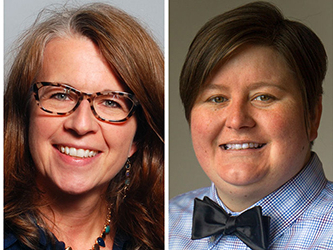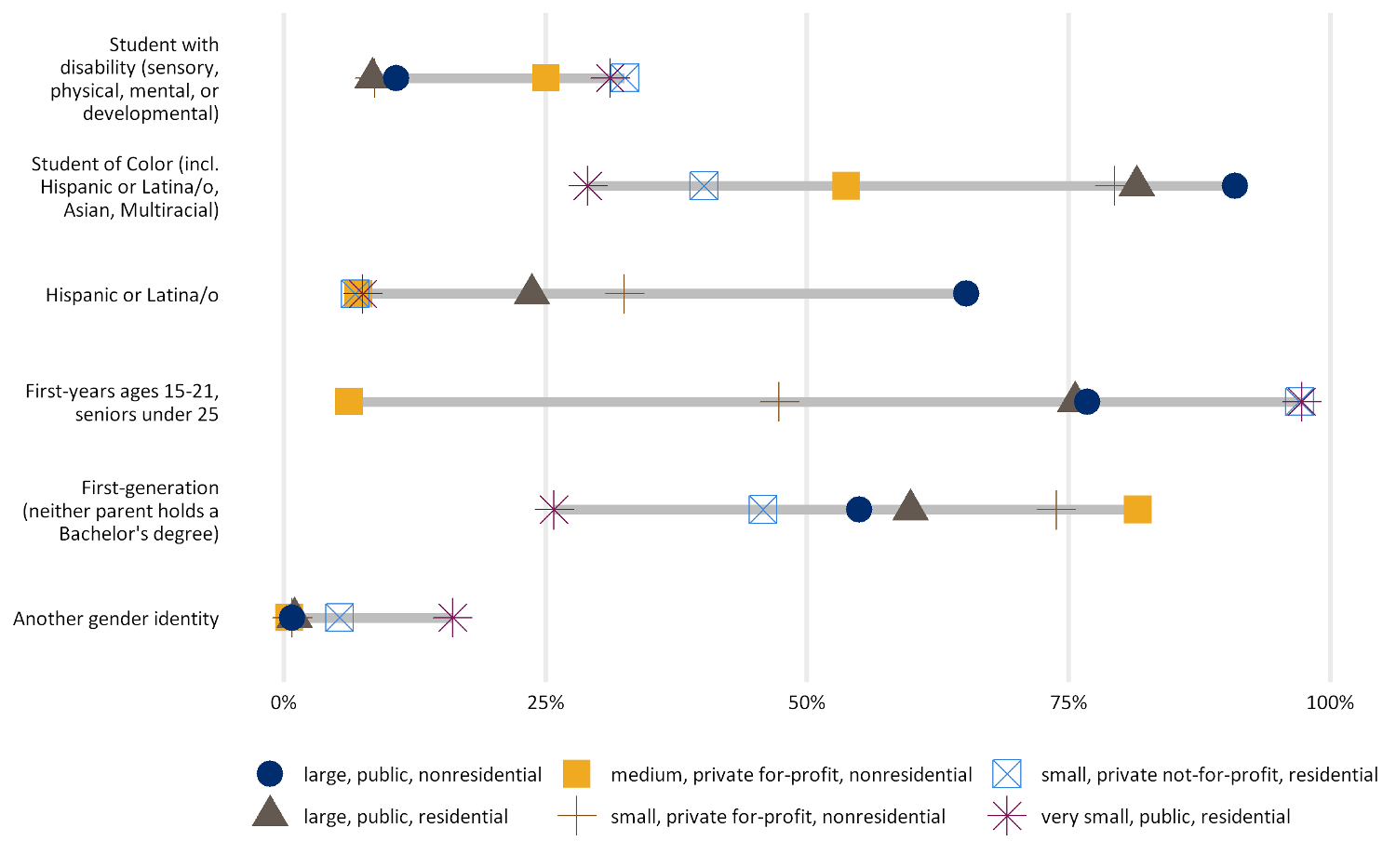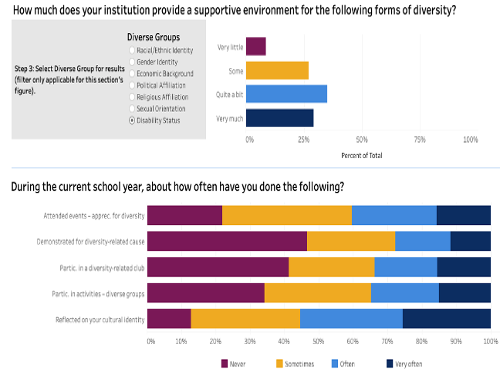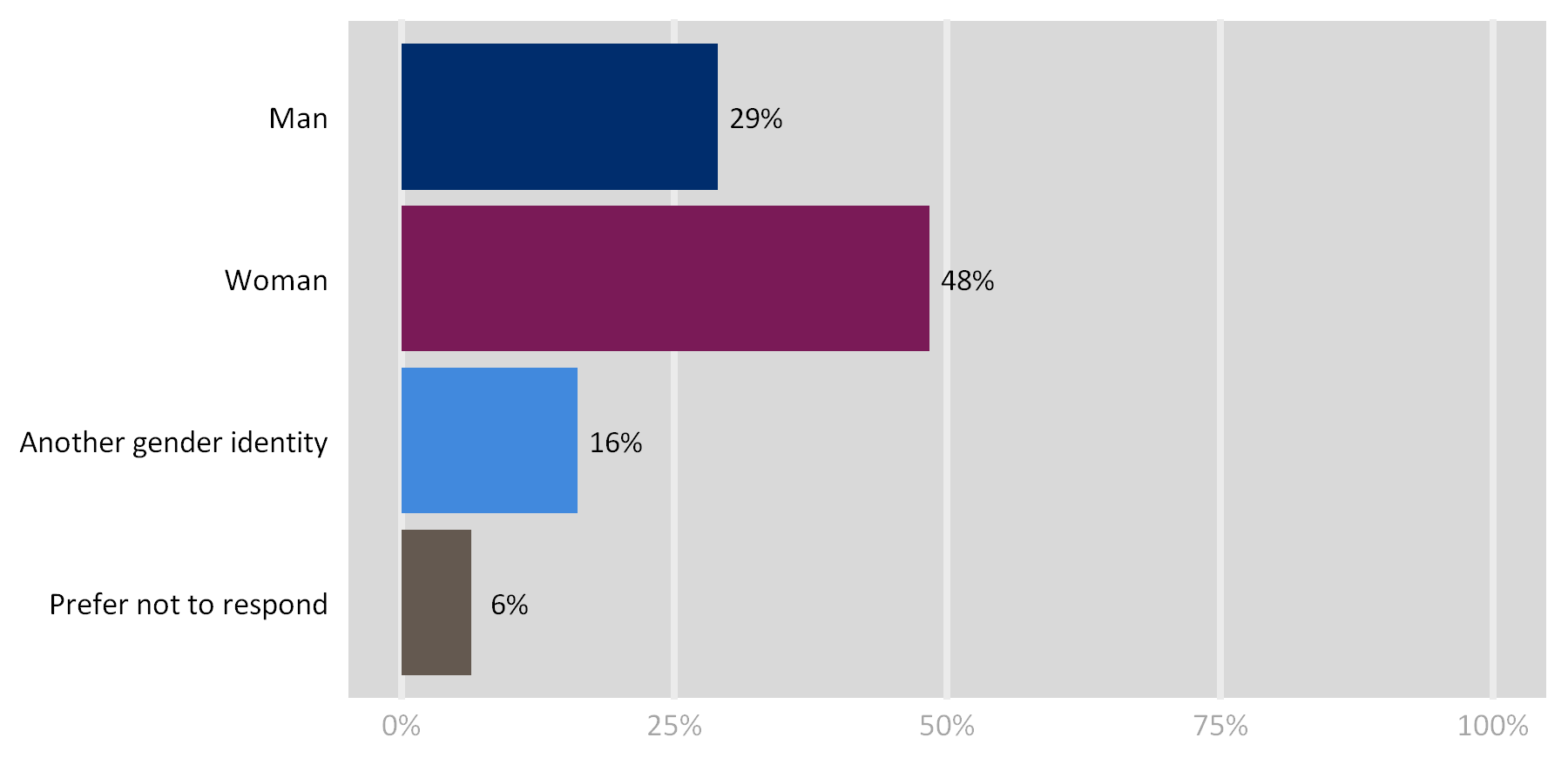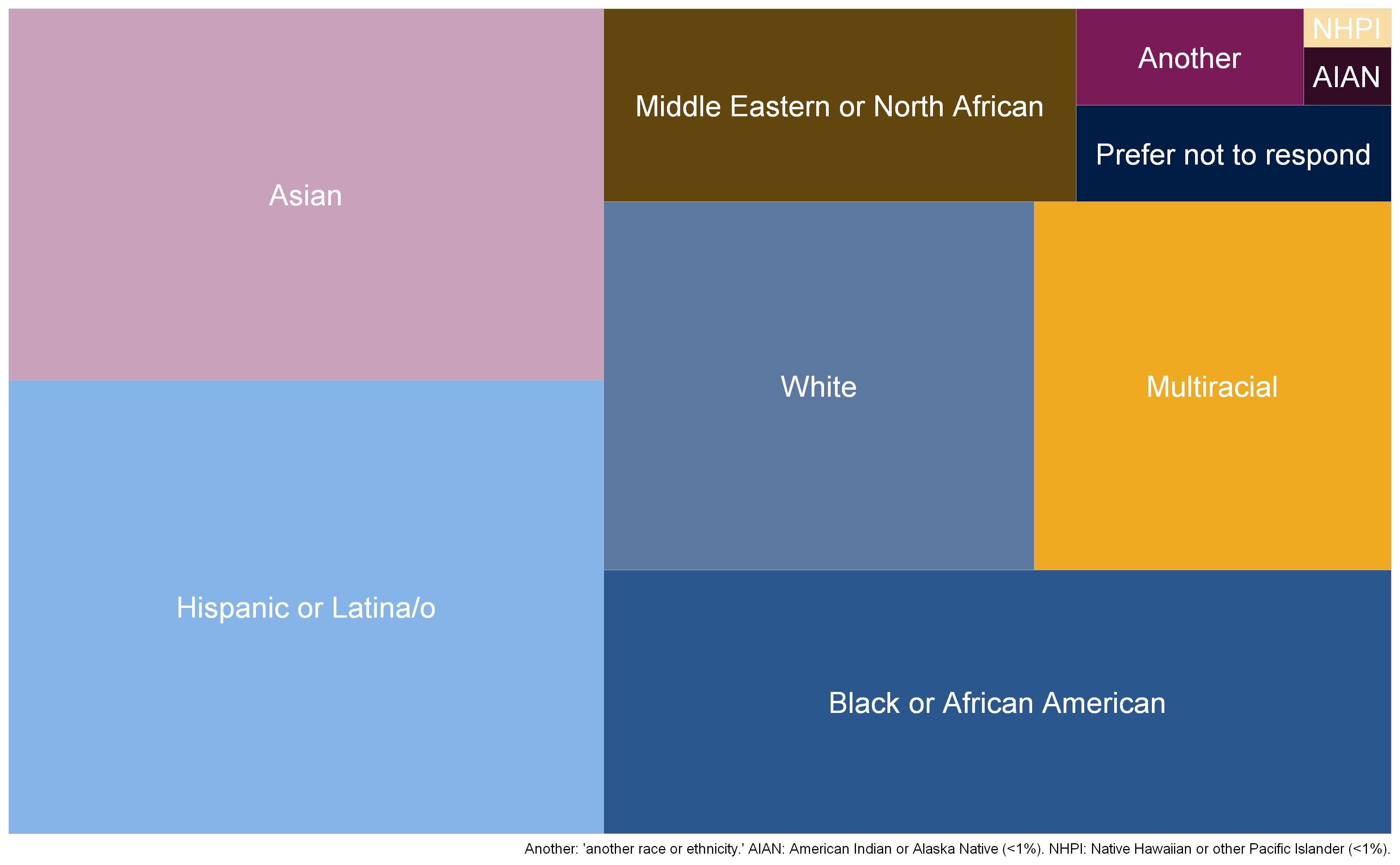An institution like the large, public residential university (blue in Figure 1) would make use of NSSE data in DEI assessments, perhaps comparing results between racial/ethnic groups or isolating responses of one group for a closer look. Centers or offices on campus dedicated to affinity groups (e.g., gay-straight alliance, LGBQ center, Black student union) could avail themselves of survey data to identify potentially unmet needs and refine programming for the students they serve (Figure 3).
Student characteristics like these and others drive (and sometimes confound) efforts to assess diversity, equity, and inclusion, and require an array of methods for data collection and analysis. In the feature entitled "Equity-Centered Methodologies Recommended When Examining Minoritized Student Experiences," we present a selection of methods for interrogating data toward these ends.
References
Kilgo, C. A. (2020). Supporting success for LGBTQ+ students: Tools for inclusive campus practice. University of South Carolina, The National Resource Center for The First-Year Experience and Students in Transition.
Linley, J. L., & Kilgo, C. A. (2018). Expanding agency: Centering gender identity in college and university student record systems. Journal of College Student Development, 59(6), 756-761.



